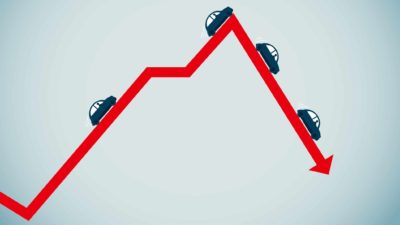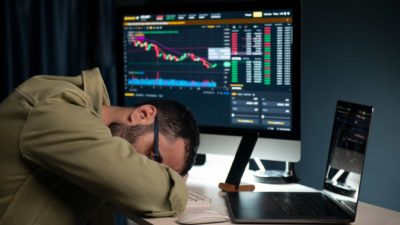This article was originally published on Fool.com. All figures quoted in US dollars unless otherwise stated.
Amazon (NASDAQ: AMZN) and Alibaba (NYSE: BABA) might initially look very similar. Both companies are e-commerce leaders that have built up massive cloud infrastructure platforms as their secondary businesses. Both have also expanded their sprawling ecosystems into adjacent markets such as video games, streaming media, and smart speakers.
But dig a little deeper and those superficial similarities quickly fade away. Today I'll examine the key differences between Amazon and Alibaba, how they affect the market's perceptions of both stocks, and if either tech giant is still worth investing in.
Don't call Alibaba the "Amazon of China"
Alibaba is often referred to as the "Amazon of China," but that casual comparison glosses over three key differences.
First, Alibaba actually generates all of its operating profits from its commerce (online and offline retail) businesses. Its cloud segment, Alibaba Cloud, continues to rack up operating losses and can only squeeze out a razor-thin profit on an adjusted earnings before interest, taxes, and amortization (EBITA) basis. That makes it the polar opposite of Amazon, which consistently generates most of its operating profits from Amazon Web Services (AWS), the largest cloud infrastructure platform in the world.
In other words, Alibaba at this point is still subsidizing the expansion of its cloud platform, which is the largest in China, with the growth of its retail marketplaces. Amazon subsidizes the expansion of its lower-margin retail business with its ongoing expansion of AWS.
Second, Alibaba still generates most of its revenue in China, but it's been a top target of the country's antitrust regulators. It was slapped with a record $2.8 billion fine last year, then forced to end its exclusive deals with top merchants and rein in its promotional deals. Those setbacks arguably made it easier for rivals like JD.com (NASDAQ: JD) and Pinduoduo (NASDAQ: PDD) to gain ground on Alibaba. Amazon also faces some regulatory challenges across the world, but its business is much better diversified, with more than a dozen region-specific marketplaces.
Lastly, the Securities and Exchange Commission has threatened to delist Alibaba and other Chinese stocks from U.S. stock markets as early as next year if they don't comply with U.S. auditing standards. That unresolved threat could prevent most investors from buying Alibaba as a long-term investment.
Alibaba faces a tougher slowdown than Amazon
Alibaba's revenue rose by 19% to 853.1 billion yuan ($134.6 billion) in its fiscal 2022, which ended March 31. Its Chinese commerce revenue rose 18%, and its cloud revenue increased 23%.
But in its fiscal 2023, analysts expect its revenue to increase by just 9% as it grapples with macroeconomic and competitive headwinds for its e-commerce business, as well as a slowdown in cloud spending by large internet companies.
Amazon's revenue rose 22% to $469.8 billion in 2021. Its North American sales grew by 18%, its international sales increased by 22%, and its AWS sales jumped by 37%.
However, Amazon expects its e-commerce growth to cool off in a post-lockdown world, with supply chain and inflationary headwinds exacerbating that pressure. As a result, analysts expect Amazon's revenue to rise by only 12% this year. On the bright side, they expect AWS to continue growing at a healthy clip.
But Amazon faces a steeper earnings decline
Alibaba and Amazon both intend to ramp up their spending as their revenue growth slows down. Alibaba plans to pour more cash into its discount marketplaces (Taocaicai and Taobao Deals) to counter Pinduoduo and JD's Jingxi in the lower-end market, and to continue increasing its mix of first-party sales -- which will squeeze its margins, but will help it address the quality control and logistics issues across its third-party marketplaces. It will also continue expanding its lower-margin overseas marketplaces.
Analysts expect Alibaba's net income to rise by 53% in its fiscal 2023, but that's only because it's lapping a very easy comparison to its 59% decline (which included its antitrust fine) in fiscal 2022.
Amazon is grappling with higher fuel and labor costs, as well as the ongoing pressure to allow its workers to unionize. At the same time, it's increasing its investments in its digital ecosystem (videos, music, and games) to lock in its Prime subscribers. Analysts expect all those headwinds to reduce Amazon's net income by 76% in 2022.
Which stock is the better buy?
Alibaba trades at less than 10 times this year's adjusted earnings estimate, while Amazon has a much higher forward price-to-earnings ratio of 48. Both multiples have been slightly skewed by the companies' elevated spending plans for their current fiscal years, but both stocks still look cheap relative to their top-line growth, trading at about 2 times this year's sales.
Alibaba might initially appear to be the better bargain, but its stock won't command a higher premium until it stabilizes its e-commerce businesses and overcomes its regulatory headwinds in China and the U.S. As for Amazon, its stock could also remain in limbo until it reins in its spending again.
That said, I believe Amazon is still a better buy than Alibaba now because it's growing faster, it's better diversified, and it doesn't face any delisting threats.
This article was originally published on Fool.com. All figures quoted in US dollars unless otherwise stated.









